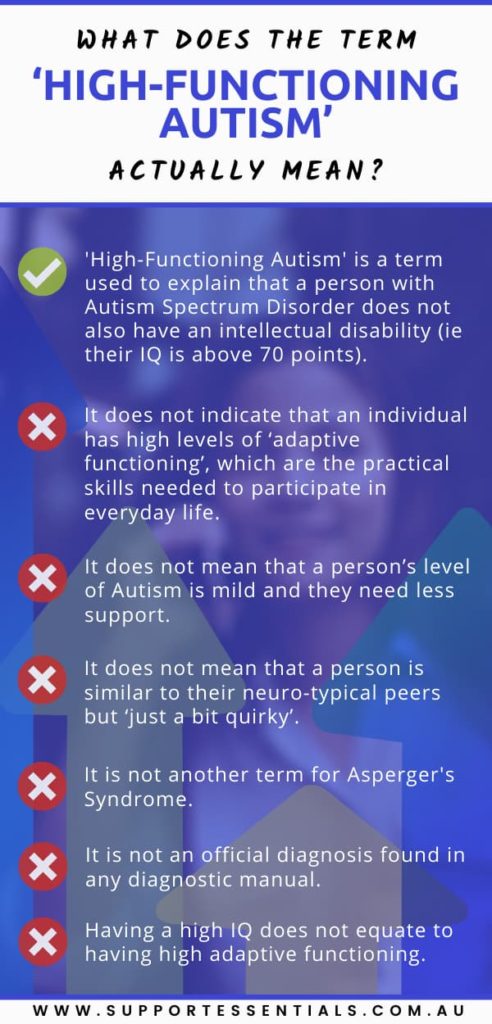

‘High functioning’ presumes functional strengths that an individual may not have by contrast, ‘low-functioning’ comes with preconceptions of not having strengths or abilities. Many autistic people have long advocated for this term to be abandoned due to its inaccuracy using this sort of functioning terminology comes with assumptions of someone’s abilities that may not match what the individual is capable of.


Why is using ‘high functioning’ an issue? New research published by our research team provides evidence to indicate why this term should no longer be used. The term was also sometimes used interchangeably with Asperger’s syndrome until the introduction of Autism Spectrum Disorder in 2013. However, ‘high functioning autism’ is not an official diagnostic term in diagnostic manuals. The term was originally devised by researchers to distinguish between individuals with and without co-occurring intellectual difficulties (the average IQ is 100, and scores less than 70 suggest a person may have an intellectual difficulty). While the term was coined by researchers in the 1980s, it is a commonplace label heard in clinics, schools, and even in mainstream media depictions of autism. It is hard to come across any terms more widely used in our field than ‘high functioning autism’. Intelligence is not a good estimate of functional levels in children diagnosed with autism


 0 kommentar(er)
0 kommentar(er)
